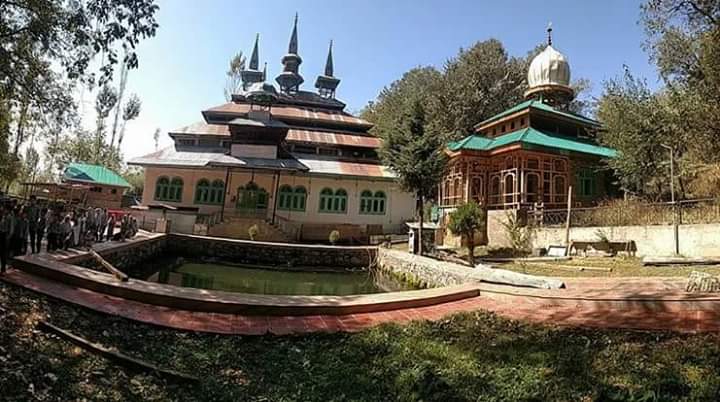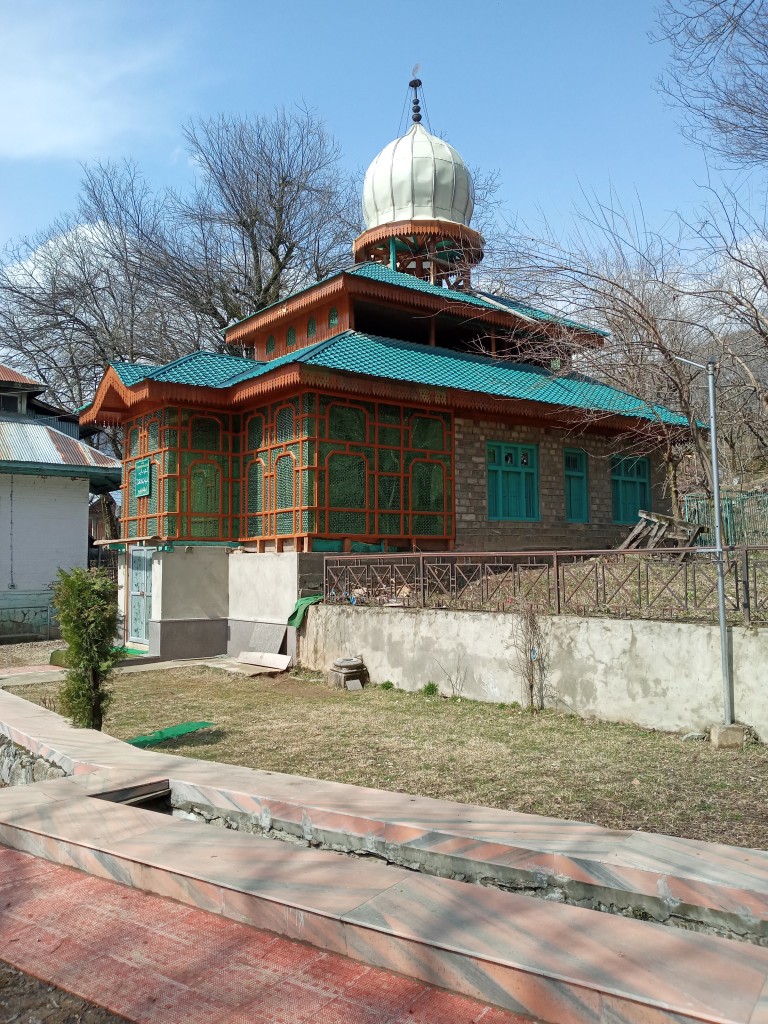Baba Abdullah, a revered Sufi saint whose teachings of love and harmony continue to resonate in the hearts of Kashmiris. The enigmatic story of a spiritual luminary, whose legacy transcends time.
By Khursheed Dar
Mubark Abdullah, widely recognized as Abdullah Guzriyali (RA), stands as a revered Sufi saint hailing from the picturesque region of Kashmir. Unfortunately, historical records remain silent about the exact year of his birth, adding an air of mystery to his early life. However, according to documented sources, this esteemed mystic is believed to have entered the world during the middle of the 10th century Hijri, aligning with the Islamic lunar calendar. His noble lineage roots him in a family of distinction in the Pargana Walur, specifically in an area encompassing Sadrikut, Ajas Bandipora, Watlab, and Sopore.
While exploring the places in Pargana that influenced his early life shows a landscape full of cultural and spiritual importance. Specifically, Sadrikut, Ajas Bandipora, Watlab, and Sopore are important in the story of his growing up. His father, Shah Husain Baba Gazi, played a key role in his early education, laying the foundation for Baba Abdullah’s deep dive into Sufism.
Special thanks are extended to Peer Yasin Saeb of Guzriyal Kupwara, whose invaluable insights paved the way for the creation of this column, shedding light on the life and teachings of Baba Abdullah.

From a tender age, Baba Abdullah exhibited a deep affinity for Sufism, seeking spiritual guidance from a diverse array of sources. His quest for a spiritual mentor led him far and wide until he encountered the eminent mystic of his era, Baba Naseeb Din Gazi (RA). Taking allegiance at the hands of Baba Naseeb ud Din Gazi marked a pivotal moment, as Baba Abdullah became his esteemed first disciple, ascending to great spiritual heights under his tutelage.
Identifying with the Suhrawardi silsila of Sufism, Baba Abdullah embraced a tradition introduced to Kashmir by Syed Sharf-ud-Din Abdul Rehman Shah, widely known as Bulbul Shah, during the 14th century AD. His final resting place lies nestled in the embrace of the ancient Himalayan mountains, in the village of Guzriyal in Kupwara district.
Known for his saintly demeanor, Baba Abdullah went by various names, including “Arif Billah” and “Mastana” Baba. Historian Hassan notes his birth name as Mubarak Abdullah, but his societal impact extended beyond mere nomenclature.
Baba Abdullah’s multifaceted contributions encompassed social and religious spheres. Historian Hassan mentions his pivotal role in the propagation of Islam, coupled with the development of human habitations, villages, mosques, bridges, culverts, bathing facilities, orchards, and inns (Musafir Khanas). His interest in horticulture manifested in the establishment of a renowned apricot orchard at Cheer Koot in Lolab Kupwara, documented by Mohammad Din Fouq in “Shababi-Kashmir” and Pir Ghulam Hassan Khouhami in “Tawriki Hassan.”
Emphasizing brotherhood and a modest way of life, Baba Abdullah actively engaged his disciples in various social endeavors. His extensive travels took him to Karnah, Iskardu, Dardistan, Kishtiwar, Nowshera Chalasoo, Akeel, Kaghan, Gadhee, Muzafarabad, and Lahore, where he disseminated messages of love, brotherhood, and harmony.
Despite familial expectations, Baba Abdullah resisted matrimonial ties, redirecting the union proposal towards his younger brother, Shah Yousf. His foresight proved accurate, as the union blossomed into a blessed family, giving rise to Hazrat Shah Musa, who followed the same spiritual path. Acknowledging Baba Abdullah’s exemplary life, the Mughal emperor Aurangzeb granted him a substantial piece of land in Muzafarabad, where he selflessly built a beautiful mosque and donated the entire area for its sustenance.

Baba Musa, Baba Mahdi Suharwardi Kubrawi, Baba Qutbu-Ul-Alm Lal Shahab, and Srinagar’s Baba were among his prominent disciples, entrusted with preserving the Murshid’s legacy. Noteworthy is Muzafar, one of Baba Abdullah’s disciples, credited with establishing the habitation known today as Muzafarabad.
In accordance with the lunar calendar, Baba Abdullah departed for his heavenly abode in the month of Muharram-ul-Haram in 1117 A.H. His shrine, nestled within the Mazar-Shrife cemetery, remains a spiritual sanctuary in the village of Guzriyal, approximately 25 km from Kupwara town.
The views expressed in this article are solely those of the author and do not necessarily reflect the opinions or views of this Magazine. The author can be reached at [email protected]
Leave a Reply